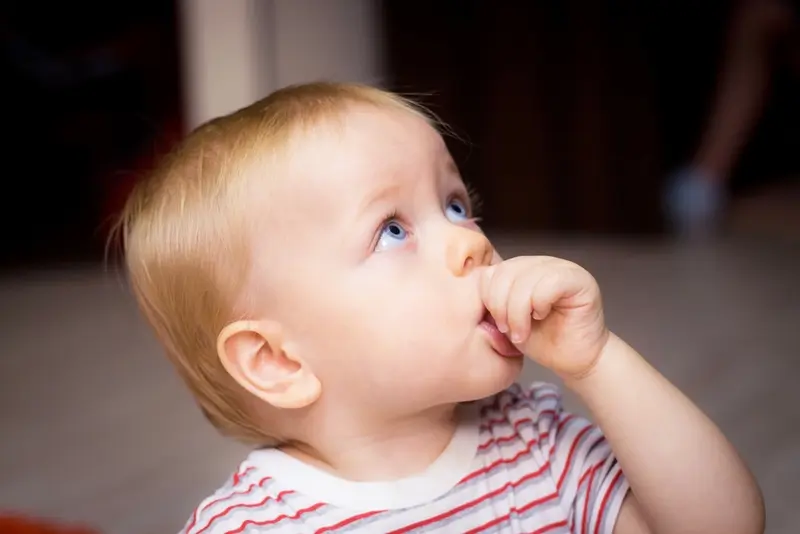For young children, popping a thumb into their mouth is a fairly common way to soothe themselves. The reflex action can make small kids feel secure and happy – but as they get older and their permanent teeth start to emerge, thumbsucking can cause speech and dental problems.
Thumbsucking and your child's teeth
Sucking on a thumb, pacifier or other object can cause problems with teeth alignment and the proper development of the mouth. An overbite, pronunciation problems, crooked teeth and a misaligned jaw are all problems which can arise from prolonged thumb sucking.
If the habit continues for long enough, thumb sucking can lead to an open bite, where both the upper and lower teeth are forced outward to the extent that they don't come together when the mouth is closed.

When should you worry about your child's thumbsucking habit?
Thumbsucking is relatively harmless for infants. Most children naturally outgrow the habit of thumbsucking as they develop speech and mobility between the ages of one and three, when it is less cause for concern. The habit only becomes a problem when it persists until the age of five or six, when permanent teeth start to come through. If your child continues to suck their thumb from habit past the age of four, you may want to more actively try to get them to give up the habit.
The type of thumbsucking can also be a factor in whether or not it is cause for concern – simply holding a thumb passively in the mouth won't be as problematic as sucking vigorously, for example.

How to stop thumbsucking
There are several approaches you can take to wean your child off thumbsucking. To get them to stop, it's better to use positive and encouraging tactics. Praise and rewards can be effective ways to break the habit.
Thumbsucking is often a coping mechanism, so you can try to focus on the cause of the anxiety or distress that is making your child want to suck their thumb and provide other forms of comfort. However, one tactic to avoid is using pacifiers as a replacement for thumbsucking. Sucking on a pacifier can harm teeth in much the same way as a thumb.
For any questions or concerns you may have about thumbsucking, feel free to get in touch with us today.
